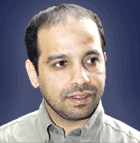Der kanadische Journalist Graeme Smith von der Zeitung Globe and Mail hat vor einem Jahr bereits getan, was nun westliche Regierungen erwägen: Mit den Taliban sprechen. Er drückte einem afghanischen Reporter mit Nähe zu den Aufständischen eine Kamera in die Hand und gab ihm eine Liste von Fragen mit – und so entstanden 42 Video-Interviews mit durchschnittlichen Taliban-Kämpfern.
Sie sind alle im Original mit englischen Untertitel auf der Website des Globe abzurufen. Es bietet sich ein ernüchterndes Bild einer Gruppe von entschlossenen Kämpfern, die gegen die „Nichtmuslime“ aufstehen, die ihr Land besetzt haben – ohne die leiseste Idee von diesen Besatzern und ihren Heimatländern. (Nicht einmal „Nato“ sagt den meisten etwas.) Sie wollen einen islamischen Staat in Afghanistan. Sie sind keine globalen Dschihadisten, die ihren Kampf weiter tragen wollen als über ihren Lebensraum. Viele von ihnen sind in den Drogenanbau verwickelt, ein Drittel ist betroffen (oder behauptet dies) von Militäraktionen der multinationalen Kräfte, die man rächen will. Selbstmordaktionen, die einst noch skeptisch gesehen wurden (weil sie keine ehrenwerte Form des Kampfes seien), werden heute von den meisten bejaht.
Auszug aus der Website:
The typical Taliban foot soldier battling Canadian troops and their allies in Kandahar is not a global jihadist who dreams of some day waging war on Canadian soil. In fact, he would have trouble finding Canada on a map.
Screenshot: JL
A survey of 42 insurgents in Kandahar province posed a series of questions about the fighters‘ view of the world, and the results contradicted the oft-repeated perception of the Taliban as sophisticated terrorists who pose a direct threat to Western countries.
Faced with a multiple-choice question about Canada’s location, only one of 42 fighters correctly guessed that Canada is located to the north of the United States, meaning the insurgents performed worse than randomly.
None of them could identify Stephen Harper as the Prime Minister of Canada, and they often repeated the syllables of his name — „Stepheh Napper,“ „Sehn Hahn,“ „Steng Peng Beng,“ „Gra Pla Pla“ — that reflected their puzzlement over a name they had never heard.
Nor did they seem to associate the word „Canada“ with anything except, in some cases, the soldiers now serving in Afghanistan. Most could not distinguish between the French- and English-speaking rotations of troops.
…
The results show the depth of ignorance among front-line insurgents in Kandahar. In a previous visit to the tribal areas of Pakistan, a reporter for The Globe and Mail personally met with more sophisticated Taliban who demonstrated a keen grasp of politics and appeared to know the latest news of the war. But those politically astute Taliban were hundreds of kilometres away from the battlefields, and it remains unclear how much control such organizers exert over the day-to-day operations of the insurgency.
The Taliban became synonymous with ignorance during their years in government, banning media such as television that might bring foreign ideas into the country. As insurgents, however, they’ve shown a newfound flair for technology, distributing video propaganda and sending press statements via text message to reporters‘ mobile phones.
…
„Those [insurgents] making decisions are more sophisticated than those you are interviewing, so there is some chance of this being plausible,“ the expert said. „But I think they’re working to their own calendar, not ours.“ Three fighters in the survey didn’t recognize the name of U.S. President George W. Bush, and another mispronounced his name as „Bukh,“ suggesting he wasn’t familiar with the word.
Those who had heard of the U.S. President often gave responses that revealed more of their parochialism. He was called a „Jew,“ and „King of America.“ Sometimes, amid the errors, the Taliban showed their simplistic view of world politics.
„He is the son of George W, [and] he is the son of Clinton W, and he is American, and is a serious enemy of Islam,“ said one fighter in his description of Mr. Bush.


